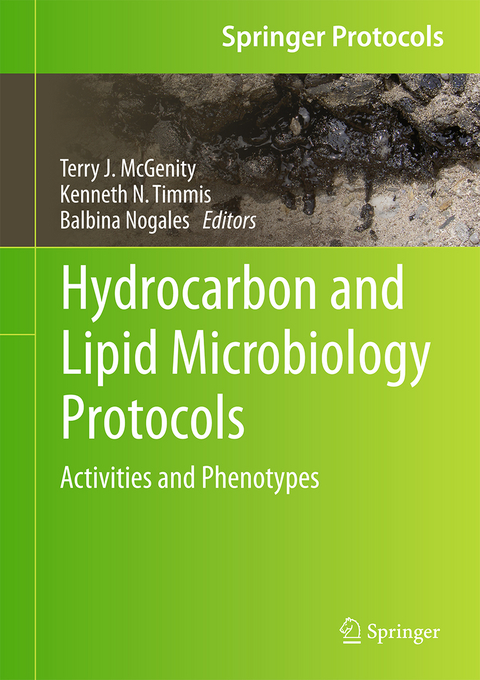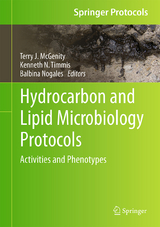Hydrocarbon and Lipid Microbiology Protocols
Springer Berlin (Verlag)
978-3-662-49138-6 (ISBN)
Hydrocarbon and Lipid Microbiology ProtocolsThere are tens of thousands of structurally different hydrocarbons, hydrocarbon derivatives and lipids, and a wide array of these molecules are required for cells to function. The global hydrocarbon cycle, which is largely driven by microorganisms, has a major impact on our environment and climate. Microbes are responsible for cleaning up the environmental pollution caused by the exploitation of hydrocarbon reservoirs and will also be pivotal in reducing our reliance on fossil fuels by providing biofuels, plastics and industrial chemicals. Gaining an understanding of the relevant functions of the wide range of microbes that produce, consume and modify hydrocarbons and related compounds will be key to responding to these challenges. This comprehensive collection of current and emerging protocols will facilitate acquisition of this understanding and exploitation of useful activities of such microbes.
Introduction.- Protocols for the measurement of bacterial chemotaxis to hydrocarbons.- Determining the tendency of microorganisms to interact with hydrocarbon phases.- Protocols for measuring biosurfactant production in microbial cultures.- Protocol for the measurement of hydrocarbon transport in bacteria.- Bacterial solvent response and tolerance: cis-trans isomerization.- Analysis of PHB metabolism applying Tn5 mutagenesis in Ralstonia eutropha.- Phenotyping microarrays for the characterization of environmental microorganisms.- Control of the concentration of aquatic hydrocarbons by microorganisms.- Protocols for measuring methanogenesis.- Respiration rate determined by phosphorescence-based sensors.- Measuring the impact of hydrocarbons on rates of nitrogen fixation.- Protocols for measuring activity of sulphate-reducing bacteria in water injection systems.- Protocol for evaluating the biological stability of fuel formulations and their relationship to carbon steel biocorrosion.- Laboratory protocols for investigating microbial souring and potential treatments in crude oil reservoirs.
| Erscheinungsdatum | 14.12.2016 |
|---|---|
| Reihe/Serie | Springer Protocols Handbooks |
| Zusatzinfo | X, 244 p. 40 illus., 20 illus. in color. |
| Verlagsort | Berlin |
| Sprache | englisch |
| Maße | 178 x 254 mm |
| Themenwelt | Naturwissenschaften ► Biologie ► Mikrobiologie / Immunologie |
| Technik ► Umwelttechnik / Biotechnologie | |
| Schlagworte | Bacterial hydrocarbon transport • biochemical engineering • Biomedical and Life Sciences • Biosurfactant • Hydrocarbon degraders • Microbial cultures • Microbiology • Microcalorimetry for analysing hydrocarbons • Phosphorescence-based sensors |
| ISBN-10 | 3-662-49138-9 / 3662491389 |
| ISBN-13 | 978-3-662-49138-6 / 9783662491386 |
| Zustand | Neuware |
| Haben Sie eine Frage zum Produkt? |
aus dem Bereich




